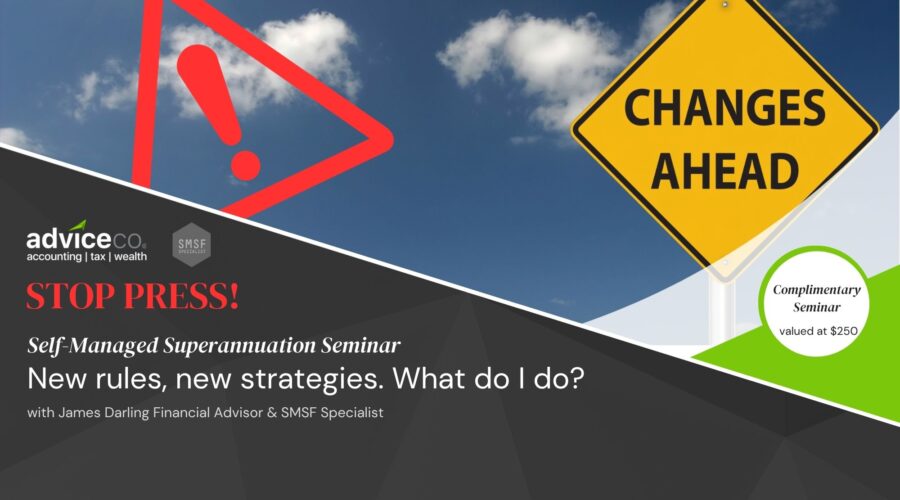Our money in 2019: Growth is slowing and risks are rising Posted on November 19, 2018

You might recognise him from TV – he often does the finance updates for Channel 7 Sunrise – and you’re invited to hear from him directly at a breakfast event.
The issues he describes seem far away: how can trade wars between the US and China impact us here on the Central Coast? Well, we’re part of a global market which means the impact is local. We’ve started to see hints of it already, with some volatility in the share market and a downturn in property values.
If this trend continues, our hip pocket will feel it through:
-
Higher cost of goods and services
-
Higher interest rates and loan repayments
-
Tighter lending options
-
Lower property values
-
Reduced investment returns
-
Drops in superannuation values
-
Slower wages growth
-
Reduced government spending
Take note, this is a worst-case scenario, but we encourage you not to look away. Knowledge is power, and facing into these risks is the first step of getting ahead of them.
We don’t quite have a crystal ball to predict what will happen next year, but Felsman is in the best possible position to make an educated guess:
“If I call it as I see it, we’re looking at economic growth of around 3.1 per cent in 2018/19, eventually lifting inflation to around 2.25 per cent. The unemployment rate should stay near 5 per cent. The Aussie dollar is likely to finish this year around US72 cents, lift to US74 cents by mid-2019 and US75 cents by end-2019. Of course the ‘wildcard’ remains the housing market and impact on household consumption. It is highly unusual for home prices to be declining without the Reserve Bank lifting interest rates or rising unemployment being the primary catalysts,” Felsman said.
“We have pencilled in an interest rate hike in November 2019, but the timing of any move by the Reserve Bank remains highly data-dependent. The low inflation and low interest rate environment remains entrenched for now, meaning that lower nominal investment returns are also here to stay. Investors will need to remain flexible and alert to the returns achieved across sharemarket sectors and across asset classes to ensure that their savings are keeping pace with cost of living increases,” he added.
David Evers is the Managing Director of one of the Central Coast’s largest Accountancy and Finance firms, and he builds on Ryan’s insights with a message to drive carefully.
“We watch the market closely so we can help businesses and families on the Central Coast get ahead. By being aware of the risks, we can take the steering wheel and set up strategies that navigate the risks and leverage the opportunities.
“We’ve designed the upcoming breakfast event to be a layman’s interpretation of the economic environment. We hope to de-code the market so we can further understand what is possible for our financial future,” he added.
Ryan Felsman and David Evers will be speaking at a breakfast event on Friday 7 December at Breakers Country Club Wamberal. Tickets are available for $24 to Central Coast businesses and families: www.robson.com.au/events
All proceeds will be donated to Community SOS Central Coast, providers of inclusive financial programs for people experiencing hardship.





